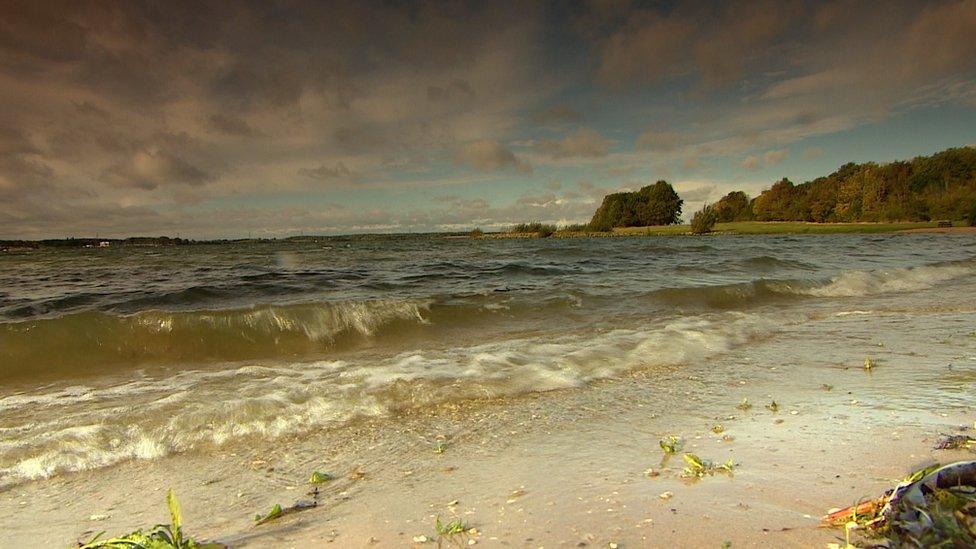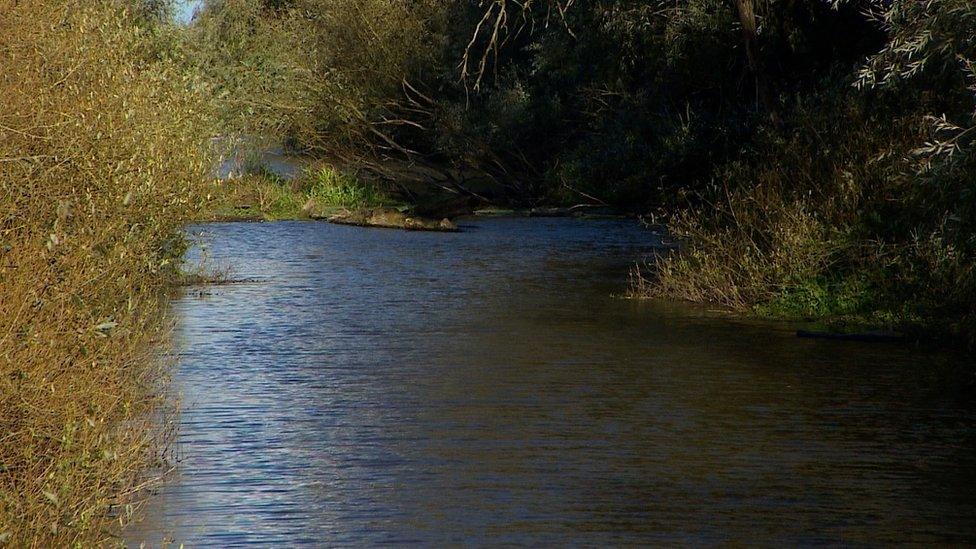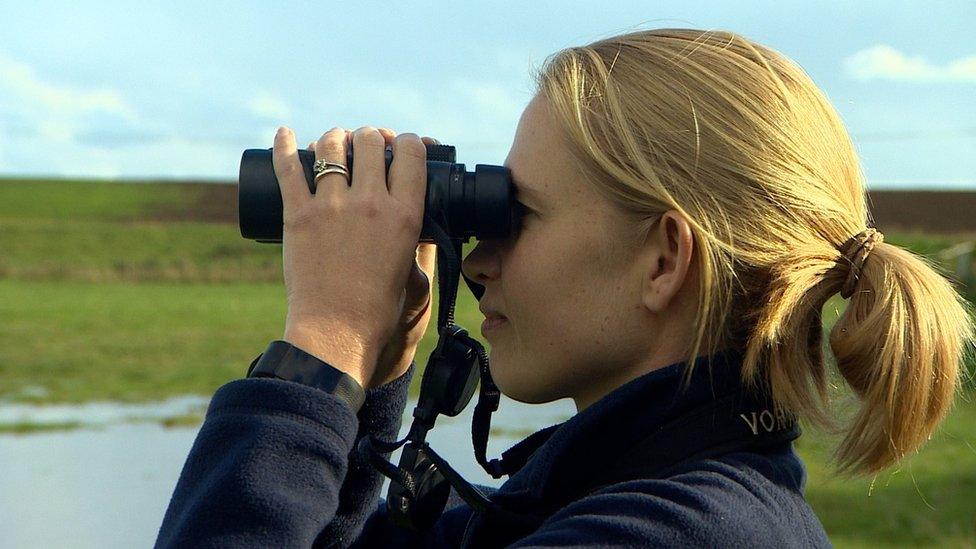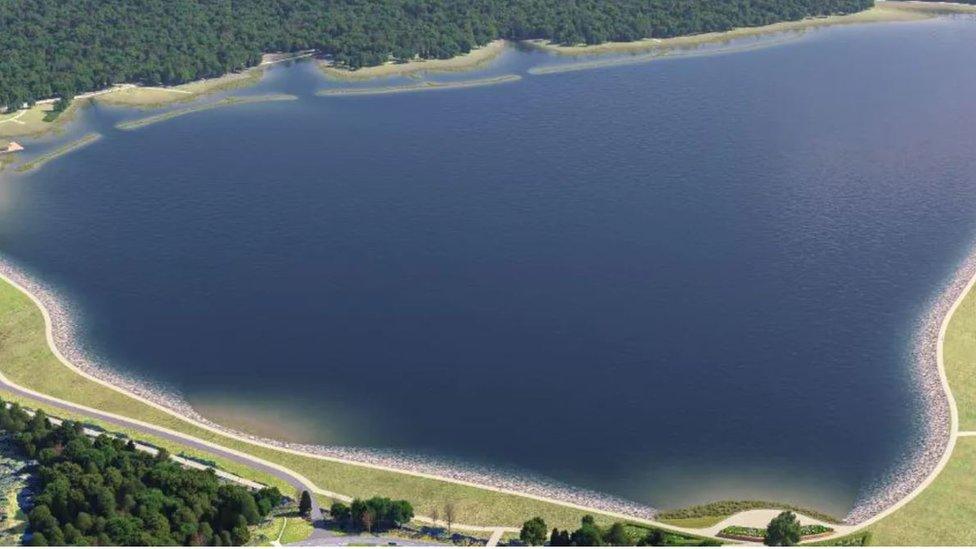Anglian Water plans for two reservoirs to serve 750,000 homes
- Published

The planned reservoirs would be slightly smaller than Grafham Water, near Huntingdon in Cambridgeshire
A water company has said it is "absolutely crucial" that plans are made to reduce the growing water "deficit" in the East of England.
Anglian Water wants to build two reservoirs, one in the Cambridgeshire fens and another in south Lincolnshire.
Together they could supply enough water for at least 750,000 homes.
Hannah Stanley-Jones, from Anglian Water, said the eastern region's deficit could run into "the hundreds of millions of litres" a day by the 2050s.
The last major water supply reservoir to be built in the UK was Carsington in Derbyshire, which opened in 1991.
Construction of the new reservoirs could begin between 2025 and 2030 and they could start supplying homes by the mid to late 2030s.

The Old Bedford River, in the Ouse catchment, could feed the new reservoir
Ms Stanley-Jones, head of future resources strategy, said: "It is absolutely crucial that we act now to reduce that deficit.
"Our water supplies are under pressure from a growing population and from climate change and the need to protect the environment and make sure we're not abstracting from the environment in sensitive locations, such as abstractions that could impact our chalk streams.
"We're talking about developing a reservoir system in the fens that would provide 100 million litres of water a day, so that will only form part of the solution."
The water regulator Ofwat is considering both reservoir proposals and is due to publish final decisions on 8 December.
Anglian Water is looking at other options including desalination, where seawater is purified so it can be used as drinking water or in agriculture.
Water reuse plants and aquifer storage and recovery, when water is injected underground and then brought back up during droughts, are also being considered.
Water for the Fens reservoir - which has not had a location chosen yet - would be taken from rivers in the Ouse catchment when flows are high, stored and released when needed.

Hannah Phillips, from the RSPB, said if "done well" the reservoir could have benefits to nature
The RSPB manages a nature reserve in the Ouse washes.
Area manager Hannah Phillips said if "done well then it could bring real benefits to the wildlife of the Ouse washes and for nature in general".
However, she added: "If it's done badly then it could, of course, threaten this important and special site for nature."
Over-extraction from underground water sources is being blamed for threatening rare chalk streams in the south of England.
Ruth Hawksley, water for wildlife officer at the Cambridgeshire Wildlife Trust, said: "I think a reservoir could help. The problem is we are already taking too much water from the chalk streams.
"The local councils had a report that said there's not enough water to support the planned development in this area, but in my opinion there's already not enough water.
"We're already taking too much and a reservoir 10 to 15 years down the line isn't going to do anything right now."

Find BBC News: East of England on Facebook, external, Instagram, external and Twitter, external. If you have a story suggestion email eastofenglandnews@bbc.co.uk, external
Related topics
- Published10 June 2021
